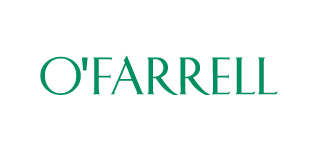On May 6, 2020, the Central Bank of the Argentine Republic (the “Central Bank“), through Communication “B” 12006 (the “Communication“), modified the expiration schedule of the Survey of External Assets and Liabilities Regime (Régimen de Relevamiento de Activos y Pasivos Externos), established through Communication “A” 6401, as amended (the “External Assets and Liabilities Regime”).
In this respect, the Communication established that as from the first quarter of 2020, those persons obliged to file the affidavit of the Survey of External Assets and Liabilities on a quarterly basis (the “Obliged Subjetcts”) will have to submit the affidavit in accodance with the following phased schedule based on the completion number of their Tax ID (CUIT by its Spanish acronym):
- Group A – Obliged Subjects with Tax ID fnished on 0 and 1: the expiration date of the quarterly affidavit of the Survey of External Assets and Liabilities will be at the 45 calendar days after the end of the quarter (or the business day immediately following);
- Group B – Obliged Subjects with Tax ID fnished on 2 and 3: the expiration date of the quarterly affidavit of the Survey of External Assets and Liabilities will be on the business day following the expiration date of Group A;
- Group C – Obliged Subjects with Tax ID fnished on 4 and 5: the expiration date of the quarterly affidavit of the Survey of External Assets and Liabilities will be on the business day following the expiration date of Group B;
- Group D – Obliged Subjects with Tax ID fnished on 6 and 7: the expiration date of the quarterly affidavit of the Survey of External Assets and Liabilities will be on the business day following the expiration date of Group C; and
- Group E – Obliged Subjects with Tax ID fnished on 8 and 9: the expiration date of the quarterly affidavit of the Survey of External Assets and Liabilities will be on the business day following the expiration date of Group D.
The evidence of complying with the External Assets and Liabilities Regime it is established as a requirement for access to the foreign exchange market.
This publication does not constitute a legal opinion on specific issues. If necessary, specialized legal advice should be sought.
For more information contact:



